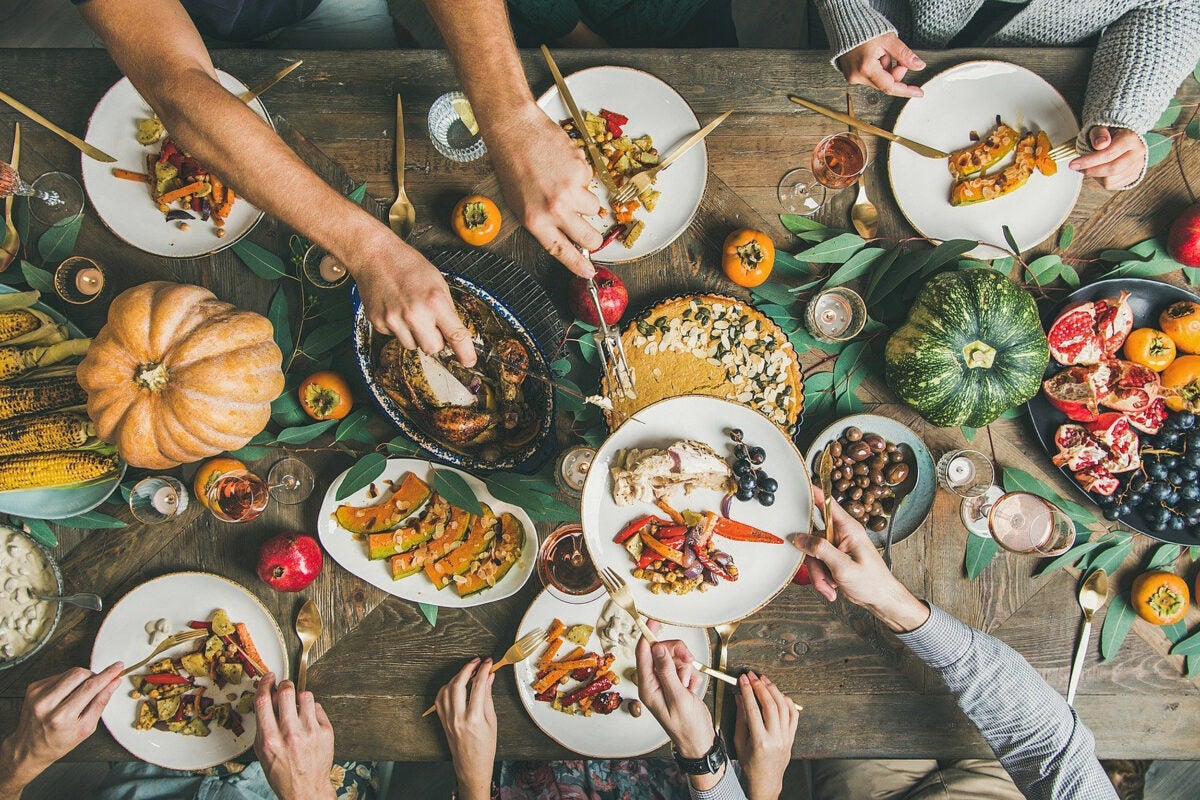With the coronavirus pandemic worsening again, the holidays are going to be a challenge this year, so a Harvard epidemiologist offered something of a survival guide for navigating travel, family gatherings, and other autumnal activities.
William Hanage, an associate professor of epidemiology at the Harvard T.H. Chan School of Public Health, said it’s important to remember the advice we’ve already been given about limiting the size of gatherings, using masks, avoiding crowds, and sanitizing hands. He also urged people to remember the importance of adequate ventilation, even if it means cracking open doors and windows when sitting down to a family dinner in November or December.
“It may be somewhat cold in the room, but this is an opportunity to get out those fall sweaters we all like to wear,” Hanage said during a Facebook Live event co-sponsored by The Forum at Harvard T.H Chan School of Public Health and PRI’s “The World.”
Cases of COVID-19 have been rising nationally over the last few weeks, with more than 10 million by Nov. 9, while estimated deaths reached 238,000, according to the Centers for Disease Control and Prevention.
Coronavirus transmission is heightened in poorly ventilated indoor spaces, where people aren’t distancing or using masks, Hanage said. That explains recent outbreaks linked to restaurant dining and highlights the upcoming hazards of the holidays, when far-flung families gather for meals.
“We can see the way holidays have the potential to be a real serious problem in pandemic transmission,” Hanage said. He offered this advice for the weeks ahead:
Travel: Welcoming college students home for the holidays doesn’t have to be a risky endeavor. Hanage said some institutions are doing a good job keeping outbreaks off campus and, when they do occur, stamping them out before they spread widely. The result, he said, is that some campuses have lower incidence of the disease than their surrounding communities. Holiday travelers should consider getting tested before they leave and, in the event of a negative test, refrain from viewing it as a free pass — false negatives are possible, and the virus can be picked up en route. That means it’s still important that travelers use masks, distance, sanitize their hands, and take other routine precautions.
Thanksgiving and beyond: When gathering for family dinners, Hanage said it’s important to remember that the risk of developing a serious illness increases rapidly for those over 40. A 50-year-old’s risk of dying from COVID-19 is 200 times higher than normal, Hanage said. It has long been recognized that a surge in cases of invasive pneumococcal disease — which can cause pneumonia or meningitis — in older individuals typically occurs after the holidays, likely due to contact with younger people with mild illness. That highlights the importance of ensuring that any gathering takes place in a safe setting, preferably one with plenty of ventilation, even if it means opening a window six inches despite chilly outdoor temperatures.
Hanage said he understands that “pandemic fatigue” is real and acknowledged that he’s felt it himself. But he said that people don’t have to dread a future of lockdowns if they accept that this once-in-a-century event can be managed using less-stringent steps, like masking and distancing, applied universally, to keep cases low and avoid straining the health system capacity.
“We have a long winter ahead of us and I’m not going to say it’s going to be fun,” Hanage said.


